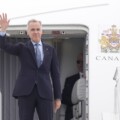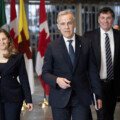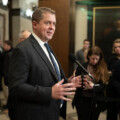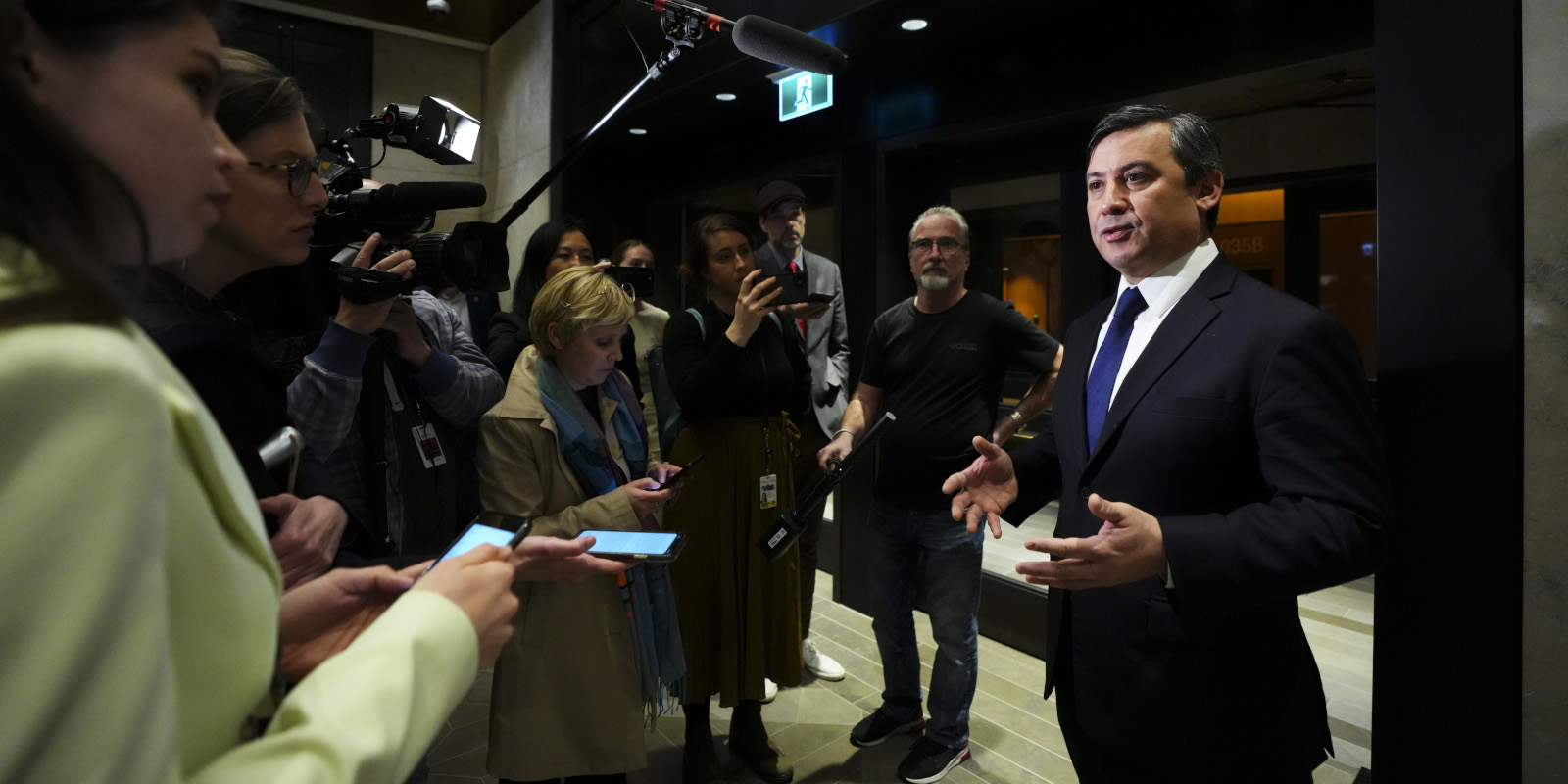Canada doesn’t have a legal definition for foreign interference, pushing the authorities to find other crimes committed by malign foreign actors if they want to prosecute them, a national security expert said in the wake of a week-long controversy about an alleged campaign by the Chinese government to intimidate a Canadian MP.
Conservative MP Michael Chong confirmed this week that Canada’s intelligence services believe his family in Hong Kong was the target of an intimidation campaign after he sponsored a motion declaring that China’s treatment of the Uighur Muslim minority in the Xinjiang region constitutes genocide.
The revelation sparked a week of confusion in Ottawa, with Prime Minister Justin Trudeau initially vowing to get to the bottom of it, and then blaming the Canadian Security Intelligence Service for not flagging this information for the government. By Thursday, Chong said the government admitted to him that the intelligence document about the alleged intimidation campaign had made its way to several ministries and the Privy Council Office.
National security experts say Canada is lagging behind its allies in its capacity to discover and deter these kinds of foreign interference activities.
“Canada needs to do what the Australians did and establish what constitutes foreign interference. The problem right now for investigations is without a clear definition of the thresholds, they need to find other transgressions that are actually illegal,” said Christian Leuprecht, a professor at the Royal Military College and Queen’s University and a senior fellow at the Macdonald Laurier Institute.
“The threshold right now for an investigation is very high,” said Leuprecht.
Without it being delineated in law, there can be uncertainty within the intelligence agencies about their ability to act.
“We have nothing in legislation that would actually define at which point agencies are authorised to step in,” said Leuprecht.
Since it was revealed in a Globe and Mail news story on Monday, the alleged intimidation of Chong’s extended family in Hong Kong has dominated debate in the House of Commons. It culminated on Thursday when Chong led question period for the Conservatives and revealed that Jody Thomas, the national security advisor to the prime minister, revealed to him that the 2021 intelligence report about his family had been widely disseminated in the government, contradicting Trudeau’s comments from a day earlier.
On Monday, the Conservatives will reveal an opposition motion calling on the government to create a foreign agents registry similar to the one in Australia. Conservative leader Pierre Poilievre will also call on the government to launch a public inquiry on foreign interference in Canada’s election, close down two police stations in Canada run by the Chinese government, and expel any diplomats involved in any of these activities.
Leuprecht said that Canada can learn a few things from Australia, especially when it comes to letting CSIS be proactive in stopping these interference campaigns. In a situation where a hostile foreign government is trying to fund a certain candidate, the Australian Secret Intelligence Service has a mandate to act.
“ASIS regularly uses its disruption measures. So it would, for instance, have an opportunity to disrupt the flow of those funds, seize bank accounts, stop the flow of money, whatever it may be. There are no such authorities in Canada. So CSIS can watch and report, but there’s nothing it can do about it,” said Leuprecht.
Public Safety Minister Marco Mendicino said he will begin public consultations on a foreign agent registry soon and his department published a whitepaper earlier in the year exploring the idea.

The Australian example, which has been widely touted by the Conservative Party and national security experts as a model, has been getting mixed reviews lately, with even some of its early proponents saying it has some major flaws.
Malcolm Turnbull, who was Australian prime minister when the registry was launched, said the registry is simultaneously hoovering up information “of marginal utility” while missing some fairly obvious interference from the Chinese government.
“A lot of the information and relationships being reported are so benign as to be barely worth doing,” said Turnbull, earlier this year, to an Australian parliamentary committee examining the registry.
“Yet if you believe the register, there is not one representative of the Chinese Communist Party’s United Front Work Department operating in Australia. That defies credulity,” said Turnbull.
A recent policy paper by Daniel Ward, an Australian lawyer who has advised two prime ministers on the issue, said the main issue with the registry is that “it treats all foreign influence efforts in the same way, regardless of their source country.”
Ward recommends sorting countries into tiers and applying more or less scrutiny and regulations based on their track record.
“Designation would be based primarily upon an assessment of the foreign state’s political system—in particular, the degree to which the foreign government controls ostensibly ‘private’ entities and deploys them to advance its national security goals,” writes Ward.
Clare O’Neil, the minister for home affairs in Australia, said in a speech earlier this year that diaspora communities are desperate for government support to combat these interference campaigns.
Only with supporting Australian citizens, the best way to deter these campaigns is to reveal them and “out” countries that are engaging them, she said.
“We don’t want to just disrupt these operations, but we want to deter future ones by imposing costs on their sponsors by outing them, where it is possible to do so,” said O’Neil.
Recommended for You

Richard Rooney: Uncertainty is the only thing Canada’s new prime minister can count on

David Polansky: Will Mark Carney really reverse course on a decade of Liberal mismanagement?

Mark Harding: Doug Ford’s actions speak louder than his words

‘Control over change’: Sean Speer on the Conservative caucus and Andrew Scheer’s appointment as interim Opposition leader



